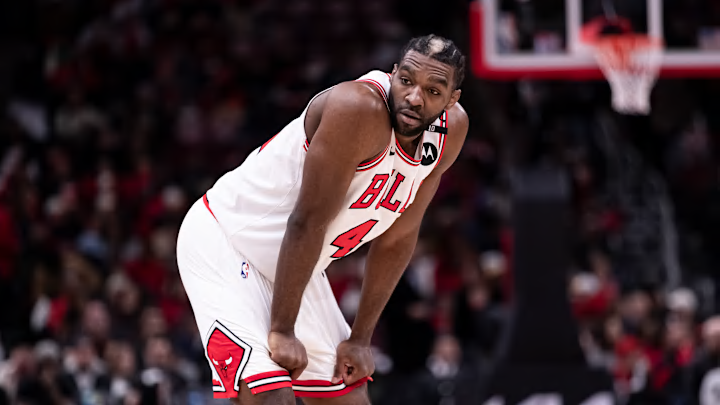Hours before the opening of the 2024 NBA Free Agency moratorium window, the Chicago Bulls made one of the most unexpected moves. The Bulls re-signed restricted free agent forward Patrick Williams to a five-year, $90 million contract.
While retaining a 22-year-old former lottery pick is anything but noteworthy, the Bulls' decision to jump the gun and sign Williams to an exorbitant contract was. Coming off an underwhelming four seasons of play, the 6-foot-7 forward lacked any sort of leverage in contract negotiations, especially as a restricted free agent.
Chicago could have extended Williams a qualifying offer, allowing the then-fourth-year pro to prove his worth in year five, or shell out a relatively modest pact in hopes he accepts. Nonetheless, the Bulls did neither. Rather than playing the waiting game and banking on a rival team offering the former fourth-overall pick a contract, the Bulls re-signed Williams out of nowhere.
Chicago's decision to swiftly re-sign Patrick Williams backfired
Of course, Williams failed to live up to the enormous contract a season ago. He averaged career-lows across the board, including a paltry 51.2 true shooting percentage. Williams was benched midseason for rookie Matas Buzelis and likely won't return to the starting lineup despite being paid a hefty sum.
This offseason, the Bulls faced a similar conundrum. Josh Giddey, whom the Bulls acquired a week before re-signing Williams, played last season as an impending restricted free agent. Unlike Williams' fourth professional campaign, Giddey demonstrated noticeable improvements, including career highs in rebounds, assists, steals, and three-point percentage.
Thus, it was expected that Giddey would be due for a significant raise, likely one nearing $150 million. However, despite his strong play, the Bulls have the leverage as Giddey is a restricted free agent. Chicago can match any offer made to Giddey.
Yet, there won't be any offers sent Giddey's way. Not one team has the ample salary cap space to make a realistic play for the ascending point guard. Unlike last season (for some unknown reason), the Bulls know this.
Chicago can begin negotiations at a lower number, say $18 million annually, before eventually coming to terms with a figure that Giddey and his representation are satisfied with. While it's a possibility that Giddey and Co. will balk at low-ball offers, securing a long-term contract is ostensibly better than settling for the one-year qualifying offer worth $11.1 million.
Instead, signing for several seasons, earning up to and perhaps well over $100 million is not only the best outcome for Giddey, but also for the Bulls. Nevertheless, that doesn't mean the Bulls should offer the Aussie an exorbitant contract without feeling the heat from fellow suitors, a lesson learned from re-signing Williams for $18 million annually a little over a year ago.
